AI and HR and IO
By Bruce Griffiths M.S.
ChatGPT sparked our recent accelerated look at AI in a world that had already begun to accept intelligent devices. We are used to asking Siri or Alexa or Google or Amazon for assistance in composition, answers to questions, instructions, shopping, or directions, but now we can task Bard or Bing or ChatGPT to assist with a much wider range of actions and decisions. They are the evolved (and evolving!) versions of earlier digital assistants.
Here are several takeaways from our AI investigation:
- We should embrace this sea change. Learn all you can and stay abreast of developments. No one knows the ultimate outcome, but like electricity or splitting the atom, there is no going back.
- View AI as a source of knowledge and information to help guide decisions and actions. Think of AI as your 24/7, 365, all-weather…
- digital/personal assistant
- sidekick/co-pilot
- partner (Siri, Alexa, Bard, Bing, ChatGPT)
- Retain your agency. Everyone’s heard of the attorney who used an AI case research summary based on fabricated (or fictional) legal cases. Once again, think of AI as a source of information and an alternative source to consider before you decide and act.
There is a darker side to AI. Pundits and prognosticators worry about these negative outcomes:
- Bias in HR (AI tends to reflect biases present in historical data)
- Fake News (obvious political implications)
- Dangerous Military Applications (autonomous drones/robots, AI arms race)
- Job Loss (McKinsey estimates that AI will displace 14% of all jobs by 2030)
- Loss of Privacy (ease of increased monitoring/surveillance)
In our world of talent management, AI has been manifest for a while in hiring/selection/promotion (AI thematic analysis and scoring of video/audio interview transcripts). AI’s ability to sift through mountains of data in nanoseconds accelerates applicant sorting. And, it’s easy to see AI applications in all facets of HR: compensation/benefits analysis, course design/evaluation in learning and development, engagement analysis and recommendations, etc.
Current thinking is pessimistic about AI being able to replace the emotional intelligence competency cluster, and creativity. Here’s a look at possible competency winners and losers through our Polaris® Competency Model:
AI Might Replace:
- Written Skills (Boilerplate Composition)
- Customer Service (Service Chatbots)
- Problem Solving (Tactical)
- Functional/Technical Expertise (Repetitive Tasks/Simple Queries / Data Analysis)
- Industry/Organization Knowledge
- Financial Acumen
AI Probably Will Not Replace:
- Active Listening
- Communicativeness
- Creativity
- Relationship Building/Sensitivity
- Self-Objectivity
- Problem Solving (Strategic)
- Creativity
- Visioning
This list has dramatic implications for those jobs and tasks requiring human, not artificial, intelligence (especially emotional intelligence) going forward.
We’ll close with musings from science and science fiction about the darkest implications for AI, i.e., the evolution of a sentient, or self-aware machine that makes independent decisions without regard to the best interests of humanity in mind (think movies like “Matrix”, or “Terminator”).
As regards AI sentience, Isaac Asimov may have had it right in his “Robot Rules” a few decades ago, in which he sets limits for AI. Just substitute “AI” for “robot” in the following passage:
“A robot may not injure a human being, or through inaction, allow a human being to come to harm. A robot must obey orders given it by human beings except where such orders would conflict with the First Law. A robot must protect its own existence as long as such protection does not conflict with the First or Second Law.”
Food for thought as we travel this brave new world!
To learn more about OSI’s industry leading competency library, Polaris®, please contact Crystal Matsuura at cmatsuura@orgsysinc.om or 858.455.0923.


